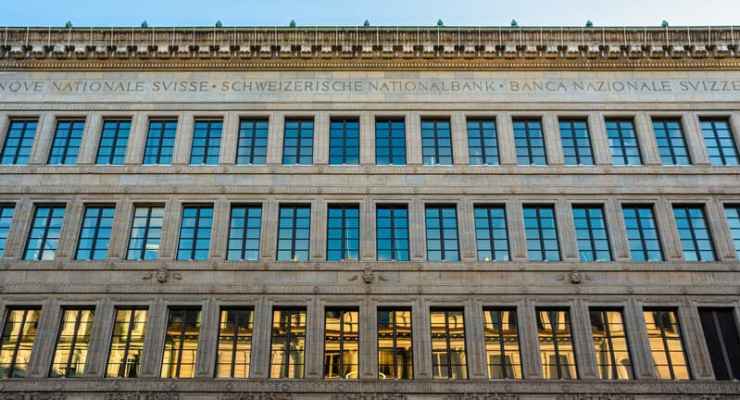On 14 December 2023, the Swiss National Bank (SNB) said it was ending its interest rate tightening cycle after a clear slowdown in inflation. © David Taljat | Dreamstime.comWith inflation rising more slowly than the central bank’s 2% ceiling (it was 1.4% in November 2023), the SNB left its key interest rate at 1.75% for a second consecutive meeting. While the SNB is still willing to intervene in currency markets by buying and selling Swiss francs, Jordan said that can go in both directions and the SNB is no longer focusing on selling francs. Even though the SNB doesn’t forecast inflation to rise above its 2% ceiling before at least 2026, SNB president Thomas Jordan made it clear that for the time being hikes are off the table. Instead, lowering the rate could be on the table at
Topics:
Investec considers the following as important: Business & Economy, Editor's Choice, Personal finance
This could be interesting, too:
Investec writes Swiss to vote on tenancy laws this weekend
Investec writes Switzerland ranked second in digital competitiveness
Investec writes Swiss wages set to rise in 2025
Investec writes Federal Council hopes to boost savings with pension change
On 14 December 2023, the Swiss National Bank (SNB) said it was ending its interest rate tightening cycle after a clear slowdown in inflation.

With inflation rising more slowly than the central bank’s 2% ceiling (it was 1.4% in November 2023), the SNB left its key interest rate at 1.75% for a second consecutive meeting. While the SNB is still willing to intervene in currency markets by buying and selling Swiss francs, Jordan said that can go in both directions and the SNB is no longer focusing on selling francs.
Even though the SNB doesn’t forecast inflation to rise above its 2% ceiling before at least 2026, SNB president Thomas Jordan made it clear that for the time being hikes are off the table. Instead, lowering the rate could be on the table at future meetings.
With economic growth slowing and inflation low there could be scope to adapt monetary policy. Some analysts predict a rate cut as early as March 2024. But Jordon cautioned that all forecasts are surrounded by high uncertainty at the moment.
Inflation stood at 1.4% in November, somewhat lower than in the previous months. The decrease was mainly attributable to lower inflation on goods and tourism services. However, inflation is likely to increase again in the coming months due to higher electricity prices and rents, as well as the rise in VAT.
Average annual inflation is forecast at 2.1% for 2023, 1.9% for 2024 and 1.6% for 2025. The forecast is based on the assumption that the SNB policy rate is 1.75% over the entire forecast horizon, wrote the SNB.
For 2024, the SNB currently expects economic growth of between 0.5% and 1%. In this environment, unemployment is likely to continue to rise gradually, and the utilisation of production capacity should decline further.
The forecast for Switzerland, as for the global economy, is subject to high uncertainty. The main risk is a more pronounced economic slowdown abroad, said the central bank.
More on this:
SNB statement (in French) – Take a 5 minute French test now
For more stories like this on Switzerland follow us on Facebook and Twitter.
